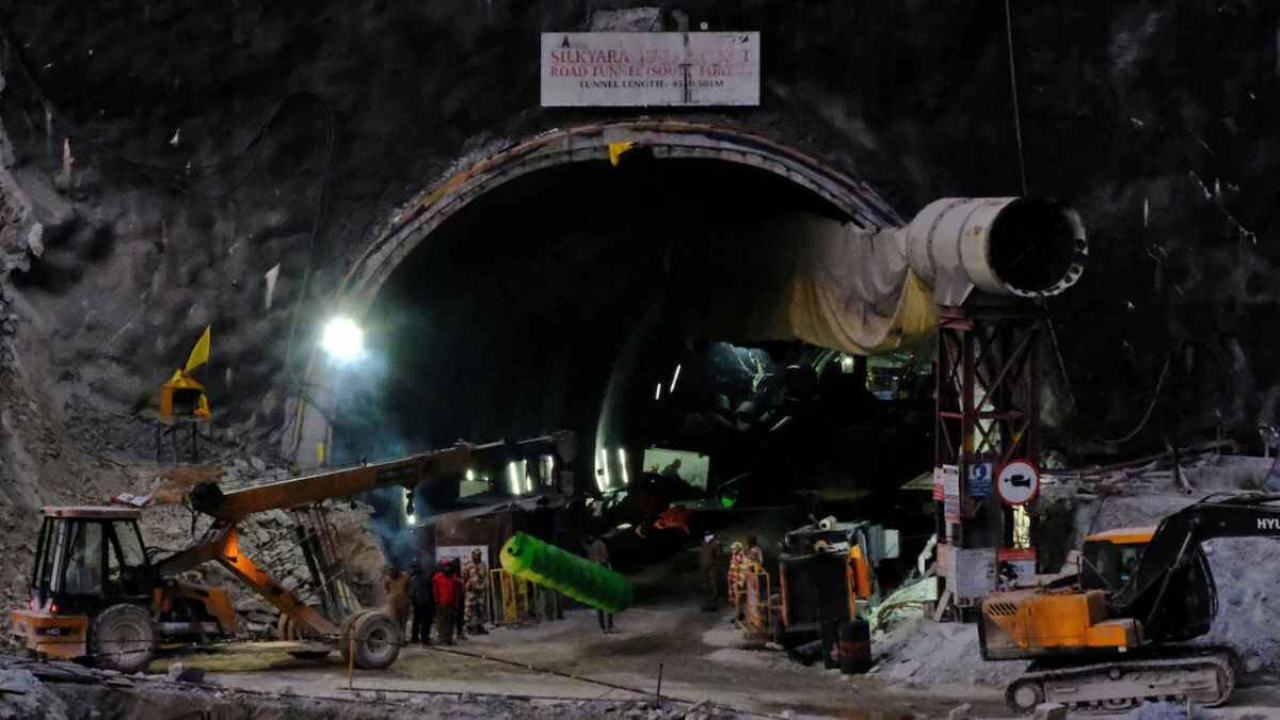NEW DELHI
Amidst the despair and uncertainty that enveloped the Silkyara tunnel collapse, the trapped workers clung to hope as their lifeline. For 17 agonising days, they endured the darkness, the silence, and the fear of the unknown, their spirits buoyed by an unwavering belief in their eventual rescue.
The two-km tunnel length that was available to the trapped workers gave them enough space to pray, practise yoga and play cards and cricket—activities that kept negative thoughts away. Besides communicating with the rescue team and family members on the surface, one thing that kept them going through the ordeal was their collective belief and resilience, even when there was no food for the initial 15 hours of the tragedy.
It was around daybreak on Diwali day that the tunnel around them rumbled and for almost half an hour the debris continued to fall, closing the exit.
Rescued worker Bisweswar Nayak said, “The tunnel fell silent around 8 a.m. and we knew we were trapped. My first thoughts went to my family, wondering if I would ever see them again.”
As the nation prayed for their well-being, the trapped workers saw light at the end of the tunnel after 17 days.
Gabbar Singh Negi, another trapped worker, said he was afraid in the initial phase of the tragedy but was hopeful of being rescued. “We were confident that the Prime Minister would rescue us. After all he has done so even for Indians trapped in foreign lands,” he said.
“There were tears of joy in my eyes,” said Munna Qureshi, the hero among the rat-mining workers who broke the last piece of rock to create an opening at the end of 60-metre debris and saw the trapped workers from his rescue pipe. “I am not an emotional person but the relief written on the faces of the trapped men moves me and my eyes welled up,” said 24-year-old Qureshi from Delhi.
He and his team of 11 manual excavators won millions of hearts with their brave act that not only saved precious lives but also displayed the nation’s ability to overcome adversity unitedly.
Qureshi said he was short of words to describe the sense of achievement that gripped him after he pushed the last stone away to reach the trapped workers.
“I have worked on many projects but this one was very special,” he said.
Asked about the pressure that he felt before starting the task, he said, “It was more of a personal challenge. I did not want to fail and wanted to bring the trapped men out.”
The rat-miner admitted that his family members were a little worried about the risky assignment but eventually showed courage and agreed that saving lives was paramount.
The rescue operation that started with large excavators and then moved to large auger machines was made more difficult with machines running into rocks and water from tree roots above the tunnel seeping in faster. The operation was finally concluded with the removal of the last 12 metres of debris by engaging manual diggers who cut through the harder materials in the debris.
The manual diggers, or rat-miners, entered the 800 mm wide pipe and crawled up to the debris and cut and removed the broken rocks and sent them out of the tunnel. Once the manual drilling work was completed, 800 mm wide pipes were pushed into the hole in the debris to create a sturdy escape tunnel.
Devendra, another manual digger and rescue team member, said once they dismounted from the pipe to join the trapped workers on the other side they were overjoyed. “They hugged us and offered dry fruits and chocolates to us for making our way to them through the debris,” he said.
Vijay Rajput, another rat-miner, said he hoped the successful operation would earn him greater social respect. “Now, our work will be respected more,” he said.
The term “rat hole” refers to narrow pits, large enough for one person to descend, that are used to extract coal. The act is similar to rats burrowing through narrow holes.
Satya Dev, one of the rescued workers from Uttar Pradesh, said they collectively fought fear and negative thoughts. “But spending 17 days in a closed environment was tough,” he said.
Emotions ran high even among the relatives of the trapped workers who waited for them at the open end of the rescue tunnel pipe. Choudhary Lal, whose son Manjit was rescued along with 40 other trapped tunnel workers, said their family had not celebrated Diwali after the news of the tragedy came in. “Now we are going to celebrate Diwali collectively.”

